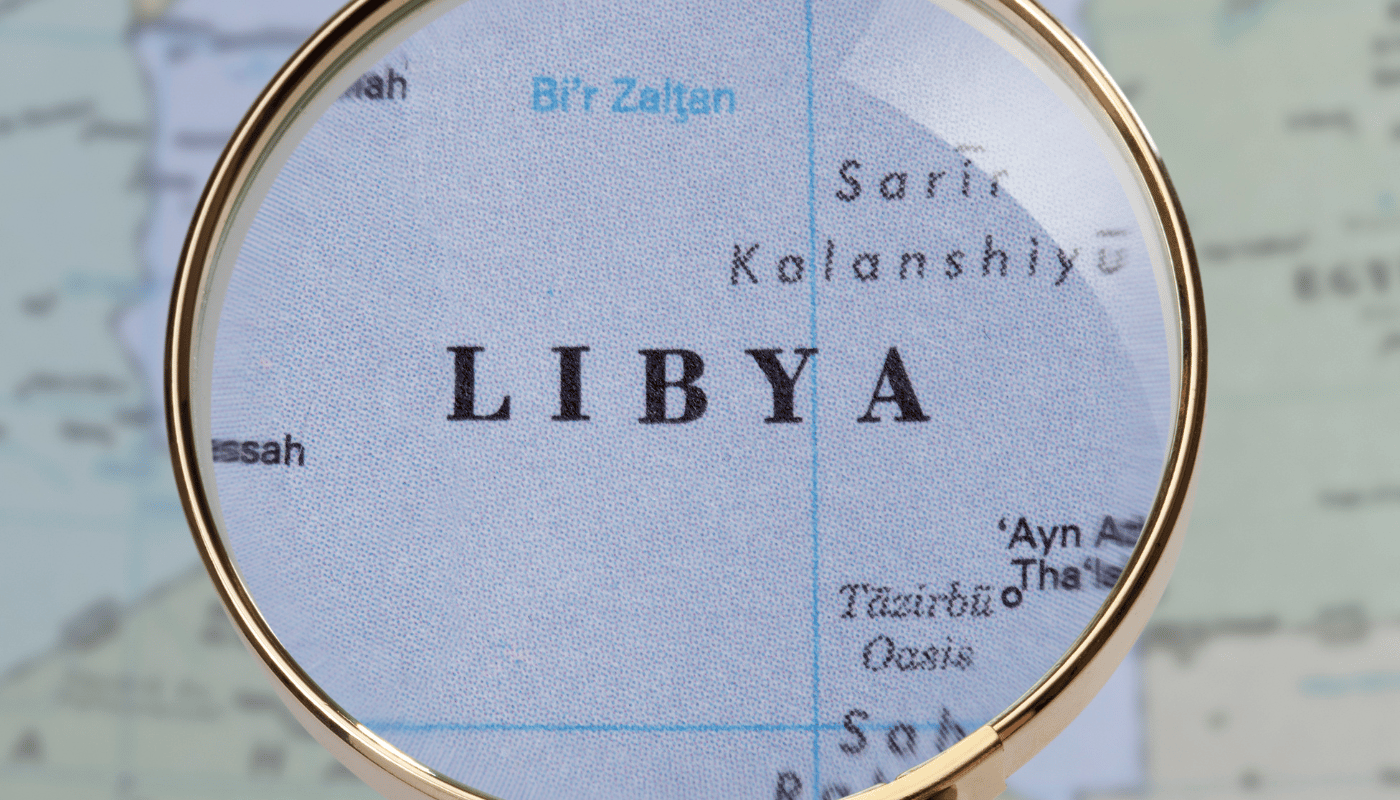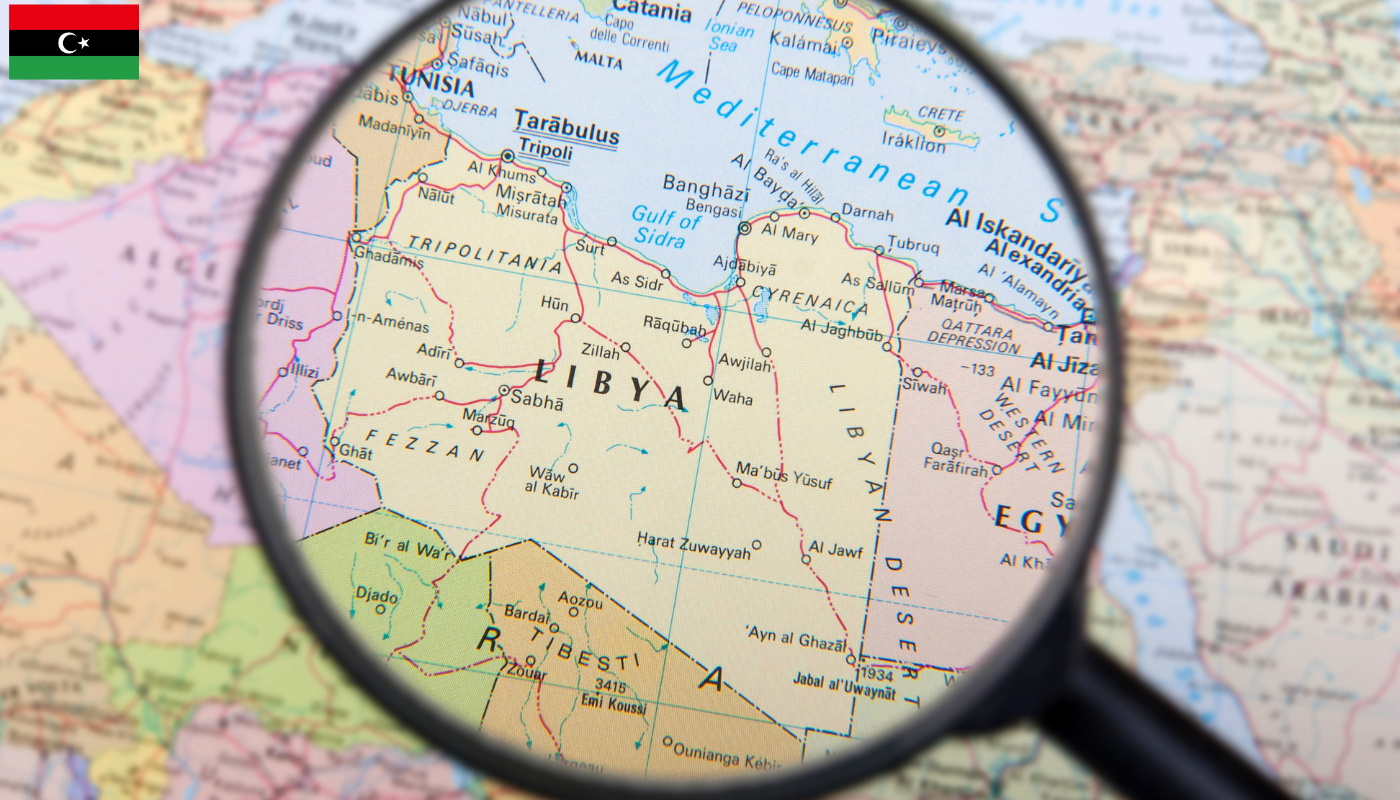Libya, a country rich in history and natural resources, plays a pivotal role in the global trade network. But what exactly does this North African nation export to the rest of the world? From its vast deserts to the shores of the Mediterranean, Libya’s exports are as diverse as its landscapes. Join us as we uncover the key commodities and products that fuel Libya’s economy and how they impact global markets. Prepare to be surprised by the wealth beneath Libya’s sands.
Crude Oil: Libya’s Prime Export
Libya, a North African country rich in natural resources, has long been recognized for its significant contributions to the global oil market. The nation’s economy is heavily dependent on the oil sector, which accounts for a vast majority of its revenue. Crude oil is not just Libya’s prime export but also a critical component of its national identity and economic stability. With the world’s 9th largest known oil reserves, Libya plays a pivotal role in the international energy supply chain, providing millions of barrels per day to countries around the globe.
The quality of Libyan crude oil is particularly noteworthy. Characterized by its low sulfur content, it is highly sought after by refineries for producing cleaner fuels. This high-quality attribute makes it a preferred choice for countries striving to reduce their environmental footprint. Despite the country’s political instability in recent years, its oil production and exportation have remained relatively resilient, showcasing the sector’s importance to both the national economy and the global energy market.
The export of crude oil from Libya has also facilitated the development of strong trade relationships with European and Asian countries, further integrating the nation into the global economy. The revenue generated from oil exports is crucial for funding public services and infrastructure projects within Libya, illustrating the sector’s role in shaping the country’s future.
Libya’s Oil Export Partners
- Italy
- Germany
- China
- France
- Spain
Libya’s strategic geographical location, combined with its high-grade crude oil, positions it as a key player in international oil politics. The country’s export partners, including Italy, Germany, and China, rely on Libyan crude for a significant portion of their energy needs. This relationship underscores the global interconnectedness of energy supplies and the essential role Libya plays in maintaining the balance of the oil market.
Understanding Libya’s Economic Backbone: Its Exports
Libya, often recognized for its vast deserts and rich history, also plays a pivotal role on the global stage through its exports. At the heart of Libya’s economy lies its oil industry, which is not only the largest sector but also the most significant contributor to the nation’s GDP and export earnings. Beyond petroleum, Libya has diversified its export portfolio to include items like natural gas, chemicals, and gypsum.
Interestingly, Libya’s geographical location and historical trade connections have also made it a notable exporter of dates. These sweet fruits are highly sought after in various parts of the world, showcasing Libya’s ability to contribute to the global food market. Additionally, the country exports a variety of other goods, including scrap metal and non-crude oil products, which further illustrates the diverse nature of its economic contributions.
Despite facing numerous challenges, including political instability and infrastructural damage, Libya has maintained its position as a key player in the international market. The resilience of its export sector is not only crucial for the nation’s economy but also for the stability of global energy prices and supplies. As Libya continues to recover and rebuild, its role in international trade is expected to evolve, potentially offering new opportunities for both the country and its global trade partners.
Key Commodities in Libya’s Export Portfolio
Delving deeper into the specifics, Libya’s export landscape is dominated by a few key commodities that have global significance. Understanding these can provide insights into Libya’s economic strategies and its impact on the world stage.
| Export Item | Global Importance | Contribution to Libya’s Economy |
|---|---|---|
| Crude Oil | Drives global energy markets | Majority of export revenue |
| Natural Gas | Alternative energy source | Significant growth potential |
| Chemicals | Industrial and consumer goods production | Diversifies export base |
| Dates | High demand in food industry | Expands agricultural exports |
| Gypsum | Construction material | Utilizes natural resources |
As Libya navigates its path towards economic recovery and stability, the strategic management of these key exports will play a crucial role. Each commodity not only supports Libya’s economy but also contributes to fulfilling global demand in various sectors, highlighting the interconnected nature of international trade.
Refined Petroleum and Gas
Libya, a country with vast reserves of crude oil, plays a significant role in the global energy market, particularly through its export of refined petroleum and natural gas. Despite the challenges posed by political instability, the nation has managed to maintain a steady output, contributing significantly to the international energy supply chain. The strategic location of Libya, along with its high-quality crude oil, makes its refined petroleum products highly sought after, especially in European and Asian markets.
The refining capacity of Libya has seen investments aimed at modernizing and expanding facilities to enhance the quality and volume of petroleum products. This not only meets the domestic demand but also increases the export capabilities of the country. Among the products, diesel, gasoline, and jet fuel are the most exported, catering to a growing demand in international markets. The natural gas sector, although smaller in comparison to oil, has seen a surge in exports, thanks to the development of offshore fields and the improvement in liquefaction facilities. This positions Libya as a key player in stabilizing global gas supplies, particularly to Europe.
The exploration of new fields and the introduction of advanced extraction and refining technologies promise a significant boost to Libya’s export potential in the coming years. The country’s contribution to the global energy market is poised for growth, reinforcing its status as a crucial supplier of refined petroleum and gas. The ongoing investments and improvements in infrastructure are expected to further enhance Libya’s export capabilities, making a substantial impact on the international stage.
| Product | Volume (Barrels per day) | Destination Countries |
|---|---|---|
| Diesel | 200,000 | Italy, France, Spain |
| Gasoline | 120,000 | Egypt, Tunisia, Malta |
| Jet Fuel | 50,000 | United Kingdom, Germany, Turkey |
| Natural Gas | 1.2 Billion Cubic Feet per day | Italy, Spain, Portugal |
| Crude Oil | 1.1 Million | China, France, Italy |
Future Prospects in Libyan Petroleum and Gas Sector
The Libyan petroleum and gas sector holds promising prospects for the future. With ongoing efforts to stabilize the country and attract foreign investment, the potential for increased production and export capacity is significant. Advances in technology and infrastructure, alongside international partnerships, are poised to unlock new opportunities for Libya in the energy market. As global demand for energy continues to rise, Libya’s role as a key supplier of petroleum and gas products is expected to strengthen, offering new avenues for economic growth and development.
The country’s vast untapped reserves present an opportunity for exploration and development projects that could further enhance its export portfolio. Moreover, the shift towards more eco-friendly energy sources has prompted Libya to explore the potential of its natural gas reserves more thoroughly. This aligns with global trends towards cleaner energy and positions Libya favorably in the evolving energy landscape. The future of Libya’s petroleum and gas sector is indeed bright, with the promise of increased contributions to the global energy supply and economic prosperity for the nation.
Chemical and Petrochemical Exports
Libya, primarily known for its vast reserves of oil and natural gas, has made significant strides in the chemical and petrochemical industry. This sector serves as a crucial component of the country’s economy, contributing to its GDP and providing employment opportunities. Among the exports, ammonia, methanol, and urea stand out for their high demand on the global market. These chemicals are pivotal in various industries, including agriculture, where they are used as fertilizers, thereby playing a vital role in food production worldwide.
The country’s strategic investment in state-of-the-art refineries and chemical plants has not only increased the efficiency of production but also enhanced the quality of exports. As a result, Libya has been able to establish itself as a reliable supplier in the international chemical and petrochemical markets. This achievement is particularly noteworthy considering the challenges posed by political instability and infrastructural constraints.
Moreover, Libya’s emphasis on adhering to environmental standards and implementing sustainable practices in chemical production is commendable. Such initiatives ensure that its chemical exports are not only competitive but also meet the global environmental regulations, further enhancing its marketability and contributing to the country’s economic resilience.
Key Petrochemical Products and Their Global Impact
Delving into Libya’s Petrochemical Export Dynamics
| Product | Global Demand | Contribution to Libya’s Economy |
|---|---|---|
| Ammonia | High | Significant |
| Methanol | Stable | Noteworthy |
| Urea | Increasing | Crucial |
| Ethylene | High | Emerging |
| Propylene | Moderate | Growing |
Metals and Non-Metallic Minerals
Libya, a country primarily known for its vast reserves of oil and natural gas, also makes significant contributions to the global market through its exports of metals and non-metallic minerals. Despite the country’s political instability and economic challenges, its mining sector has shown resilience, with a particular focus on materials such as gypsum, limestone, and salt. Additionally, Libya has untapped reserves of metals that, if explored, could substantially enhance its economic landscape.
The country’s gypsum deposits are of noteworthy quality, often used in the production of cement and as a crucial component in the construction industry. Limestone, another abundant resource, serves as a critical input in construction materials, agricultural applications, and steel production due to its high calcium carbonate content. Moreover, Libya’s salt pans, primarily located along the coast, contribute significantly to the salt export market, catering to both industrial and culinary uses.
While the metals sector is less developed, Libya holds potential reserves of iron ore and possibly other base metals such as copper and nickel. The exploration and development of these resources could open new avenues for economic diversification and job creation. However, investment in mining infrastructure and technology is crucial to unlock this potential, alongside efforts to ensure environmental sustainability and community welfare.
| Mineral | Uses | Contribution to Exports |
|---|---|---|
| Gypsum | Construction, Cement Production | Significant |
| Limestone | Construction Materials, Steel Production | High |
| Salt | Industrial, Culinary | Moderate |
| Iron Ore | Steel Manufacturing | Potential |
| Copper/Nickel | Electronics, Construction | Exploratory |
Despite the promising prospects of Libya’s metals and non-metallic minerals sector, it faces several challenges, including the need for regulatory frameworks, sustainable management practices, and foreign investment. The development of this sector could not only boost Libya’s economy but also contribute to the stabilization and growth of the North African region. As global demand for construction materials and metals continues to rise, Libya’s role in the international market could become increasingly significant, provided that the country navigates its challenges effectively.
Looking ahead, the strategic development of Libya’s metals and non-metallic minerals sector represents an opportunity for economic diversification beyond oil. This requires not only the exploration and sustainable exploitation of its mineral resources but also the establishment of partnerships with international investors and experts. Through such collaborative efforts, Libya can harness its geological wealth to build a more resilient and diverse economy.
Agricultural Products and Dates
Libya, a country primarily known for its vast oil reserves and arid landscape, surprisingly makes significant contributions to the global market through its agricultural sector. Despite the challenges posed by its predominantly desert terrain, Libya has harnessed its limited arable land to cultivate a variety of agricultural products, with dates being the crown jewel of its exports. The country’s commitment to agriculture is a testament to its resilience and innovation in overcoming environmental constraints.
Dates, in particular, stand out as Libya’s most prized agricultural export. Libyan dates are highly regarded for their quality and sweetness, making them a favored choice in international markets. The cultivation of dates has a long history in Libya, with techniques passed down through generations, ensuring the sustainability and growth of this sector. Alongside dates, Libya also exports other agricultural products such as olives, olive oil, and citrus fruits, which are slowly gaining traction in the global market.
Beyond these, Libya’s agricultural sector is diversifying and expanding its export portfolio to include tomatoes, peppers, and potatoes. These crops are increasingly being cultivated using modern and efficient farming techniques, showcasing Libya’s potential to become a more significant player in the global agricultural scene. The country’s strategic location along the Mediterranean also provides an advantageous trade route, further bolstering its export capabilities.
- Dates
- Olives
- Olive Oil
- Citrus Fruits
- Tomatoes
- Peppers
- Potatoes
In conclusion, Libya’s agricultural sector, particularly its date production, represents a significant and growing segment of its economy. Despite facing geographical and environmental challenges, the country has demonstrated a remarkable ability to adapt and thrive. This resilience, coupled with a strategic approach to cultivation and exportation, positions Libya as a noteworthy contributor to the global agricultural market. As it continues to develop and diversify its agricultural exports, Libya stands as a testament to the potential within challenging environments, offering valuable lessons in sustainability and innovation.






